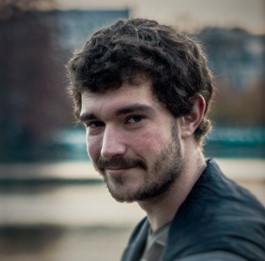Title
Information Theoretic Contributions to Covert Communications
Abstract
The problem of covert communications, also known as communications with low-probability of detection has gained interest in the information theory community in the last years. Since Bash et. al. showed in 2012 that the square-root law applied in the point-to-point case for such communications systems, the number of contributions on the topic did not cease to grow. In this thesis, two new problems of covert communications are introduced. First, the problem of covert communications over a point-to-point link where a warden observes only a fraction of channel outputs in order to try to detect the communications is studied. An achievability bound in the finite block-length regime is derived for this problem. Second, the problem of embedding covert information into a given broadcast code is introduced. Given a broadcast code to transmit a common message to two receivers, the goal is to determine the maximum number of information bits that can be reliably sent to one receiver while remaining covert with respect to the other receiver. For this problem, both an achievability and converse bound in the asymptotic block-length regime are derived for a particular class of channels, i.e., symmetric channels. Together these bounds characterize the maximum number of information bits that can be covertly embedded in a given broadcast code for symmetric channels.
Jury
- Dr. Albert Guillen i Fabregas, Université Pompeu Fabra, Espagne. Rapporteur.
- Dr. Aline Roumy, INRIA, France. Rapporteure.
- Dr. Laurent Clavier, IMT Lille Douai, France. Examinateur.
- Dr. Inbar Fijalkow, Université de Cergy-Pontoise, France. Examinatrice.
- Dr. Jean-Marie Gorce, INSA de Lyon, France. Examinateur.
- Dr. Ligong Wang, CNRS, France. Examinateur.
- Dr. Guillaume Villemaud, INSA de Lyon, France. Directeur de thèse.
- Dr. Samir M. Perlaza, INRIA, France. Encadrant de thèse.
- Dr. Ronan Cosquer, DGA, France. Invité.

